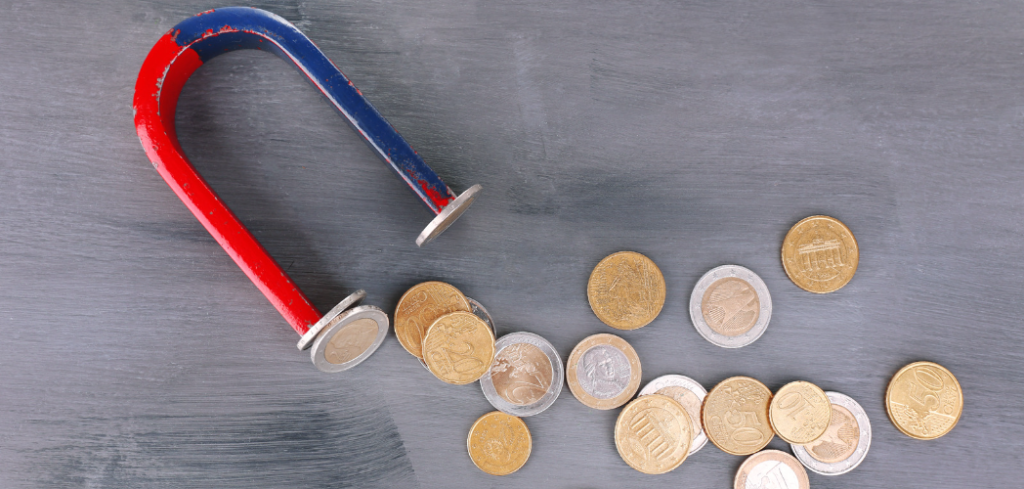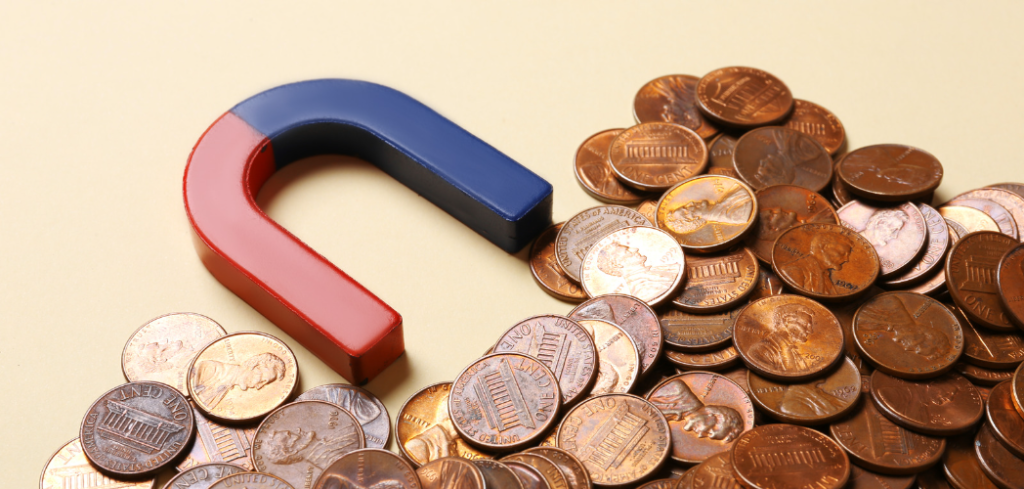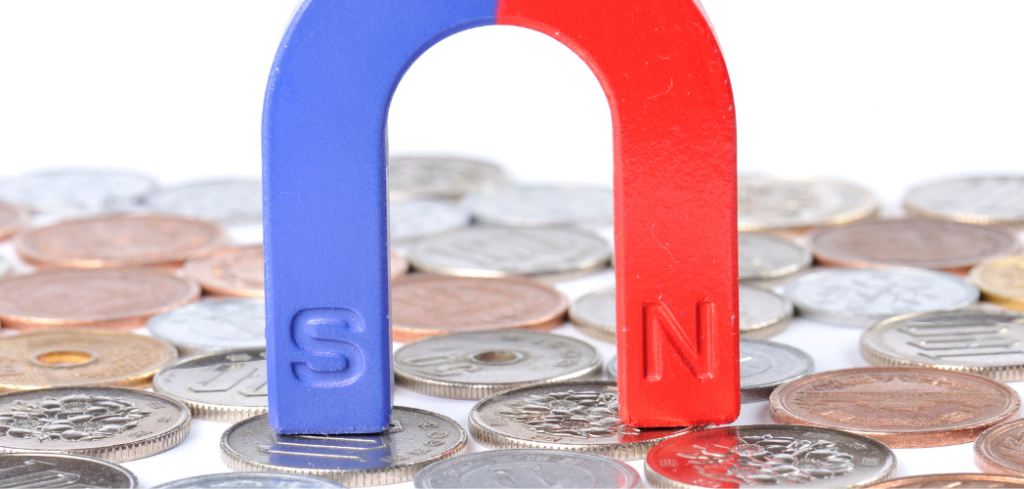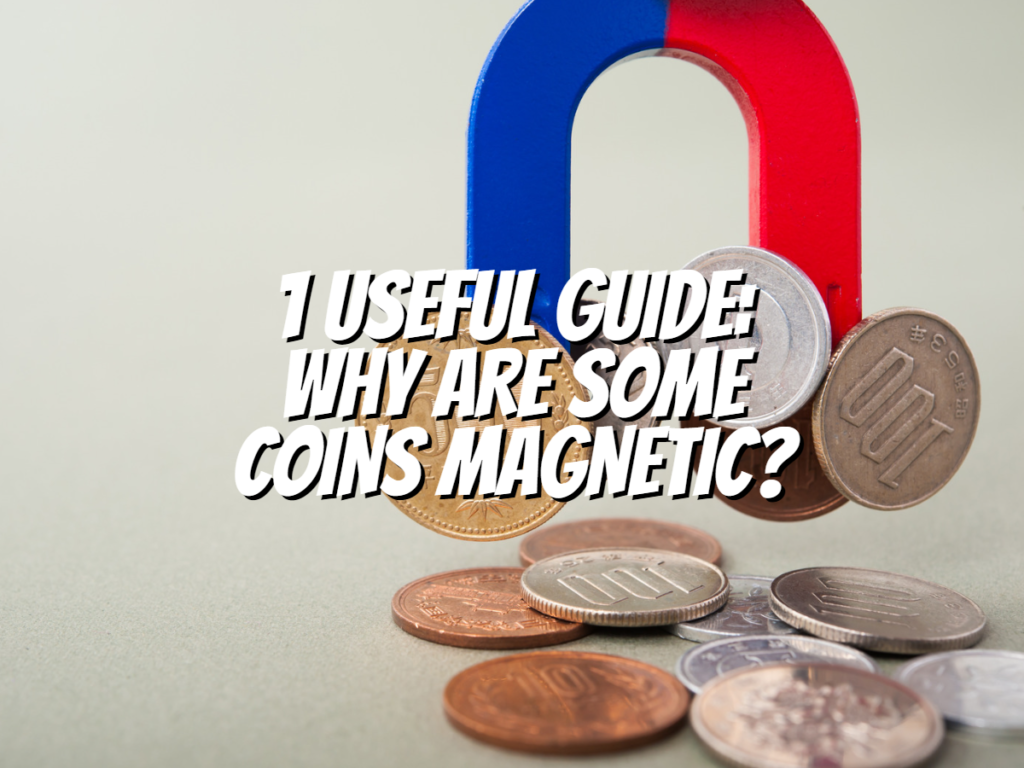Why are some coins magnetic? Well, you see, coins are made of various materials, and that’s precisely why some are magnetic while others are not.
Well, you see, the metal found most frequently in coins is copper, and it just so happens that copper isn’t magnetic.
Why Are Some Coins Magnetic?

Well, you see, the metal used to make certain coins causes them to be magnetic.
Yes, that’s correct. If a coin contains iron and steel, it will be attracted to a magnet because these metals are magnetic.
That’s because some older coins, like pennies, are magnetic, whereas others, like dimes and quarters, are not.
Some coins are magnetic due to their manufacturing process.
Sometimes, we make coins by stamping a piece of metal with a design, which can make the metal magnetized.
Stamping the metal can create tiny magnetic fields within the metal itself.
Which Coins Are Magnetic and Which Are Not?

As I stated earlier, coins can be magnetic for two main reasons: the metal they are made of and how they are made.
Which coins are magnetic, and which ones are not? Well, you see, pennies and certain older coins happen to be magnetic because they contain iron or steel.
Well, you see, dimes, quarters, and most modern coins aren’t magnetic because they’re made of metals that aren’t magnetic. It’s noteworthy that any coin can become magnetized if stamped during manufacturing.
In some other countries, their magnetic coins may contain iron or steel.
Well, you see, nickel is indeed a magnetic metal. However, the standard coins used in the United States do not have enough nickel to possess magnetic properties.
Well folks, did you know that the so-called “nickel” coin, worth five cents, is only made up of 25% nickel?
That’s right; the other 75% is good old copper. So, folks, just to let you know, the five-cent coins in the United States aren’t magnetic even though they’re made of nickel.

Many coins in countries like Canada and Great Britain are made from magnetic metals like steel and nickel.
Well, in Canada, many of the coins minted since 2000 are magnetic because they’re made of steel.
This includes the 1-cent, 5-cent, 10-cent, 25-cent, and 50-cent coins. So, in Great Britain, the 1 and 2-pence coins that have been struck since 1992 are made from a steel alloy and are also magnetic.
Numerous other instances of magnetic coins exist from various parts of the globe.
It’s important to remember that these coins usually have little intrinsic value and are made of base metals.
Well, you see, some coins have iron or steel in them, which makes them magnetic. And then, others can become magnetized during the manufacturing process.
You should always check if a coin is magnetic by using a magnet. This can give you a clue about the metal it is made of and how it was manufactured.
Takeaway:
Coins can be classified into two categories based on their magnetic properties. Some coins are magnetic, while others are not.
The reason for this difference lies in the materials used in their production and the manufacturing process.
If you have coins made of magnetic metals or have been magnetized during manufacturing, they will be attracted to a magnet.
On the other hand, coins that are not made of magnetic metals or have not been magnetized will not be attracted to a magnet.
Knowing the materials used in coin minting can be advantageous for those who collect coins.
It’s important to know which metals are used in coins and how they affect their magnetic properties.
This knowledge can help you as a collector decide when to add to your collection.
Before you go…
We hope you enjoyed reading this article as much as we enjoyed writing it. If you have any questions, please feel free to leave them in the comment section! Happy Collecting!
Check out my next article: “15 Fun Facts About Coin Collecting!“
Related Articles:

